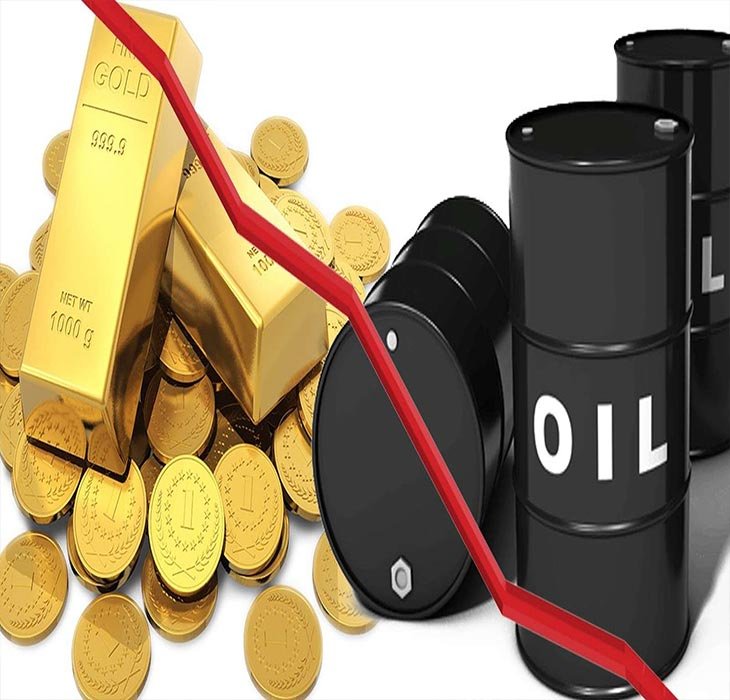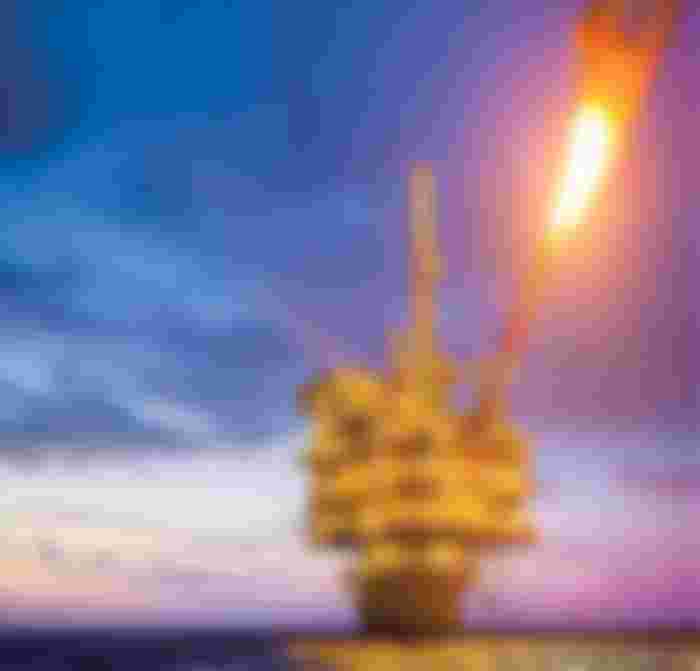Black Gold: How did it become a symbol of power and rule?


In 1973, during the Arab-Israeli war, the oil-exporting Gulf states cut off oil supplies to the United States, and the largest oil crisis in the history of the world occurred.This source of energy now plays a central role in determining the foreign policies of countries According to a report by the New York Times, when oil was discovered in Pit Hole, Pennsylvania, the population was barely fifty people, but within a year of the discovery of oil, the population exceeded ten thousand people. The term black gold is also used for petroleum.
The main reason for this is that when it is extracted from the earth in its raw state, its color is blackish. That is why people started calling it "black gold". Black gold is a source of energy and It will not be in the imagination of those who discovered it that in the coming time this source of energy will become so powerful that it will be called the backbone of the world's economy and they would not have thought that such a time. There will come a time when this source of energy will not only cause wars between countries, but it will also be the cause of change in power, and this "symbol of power" will be the same, and of course, no one will think that this source of energy will happen. Will it ever determine the foreign policies of the countries?
If anyone still doubts the power of this source of energy i.e. "crude oil", let him remember that in 1973, during the Arab-Israeli war, when the oil-exporting Gulf states restricted the supply of oil to the United States. If done, the biggest oil crisis in the history of the world emerged like this when the fourfold increase in oil prices shook the world economies. Therefore, it was the year 1974 when the American Secretary of State Henry Kissinger, along with the then Pakistani Prime Minister Zulfikar Ali Bhutto, were persuading the same Gulf states to reconsider their decision about the United States. And this is just a short time ago, when a new global oil crisis arose after Russia's invasion of Ukraine, American President Joe Biden asked Saudi Arabia to increase oil production and stabilize its prices. When trying to contact the rulers of the Arab and Gulf states on the phone, the Saudi rulers
Who doesn't know that the US was strongly against Iran's nuclear program from the beginning but it is the oil crisis that gave the US not only the indication to restore the Iran nuclear deal and improve relations, but now it wants to. That this agreement should be completed as soon as possible in order to bring a new exporter to the global oil market, which will reduce the oil monopoly of the Gulf states and lower oil prices. Remember that Venezuela and Saudi Iran is the world's third largest oil exporter after Arabia.
Seeing the power of oil, the thought comes to mind that when and how was it discovered?

History of Crude Oil:
Few people may know that when oil was not discovered, people used to light lamps at night with fish oil, especially oil distilled from whales, to light lamps. This was before 1859. But when an American businessman Edwin Drake discovered oil in 1859, according to an American historian, "this discovery of oil saved the whale species from extinction." Edwin Drake was not financially stable, but he He claimed that if he was financed, he could extract oil from the rocks and plains because he knew that traces of what he believed to be brown crude oil had been seen in Pennsylvania, from which kerosene had been distilled. What can be done to light up our homes? So, in view of his claim, some wealthy people announced to give him some money as a loan. But after a long time, Drake was successful.
He continued this process and when the oil came out, it came out with such pressure that it was seen about 21 meters above the ground towards the sky. As this was an area rich in crude oil, clear evidence of the presence of oil began to be found within a few kilometers of Drake's discovery site. According to a report by the New York Times, when oil was discovered in the city of Pit Hole, Pennsylvania, the population of this area barely consisted of fifty people, but within a year of the discovery of oil, the population of the city of Pit Hole increased to ten thousand. It had exceeded the population.
On the history of oil, Daniel Prigg wrote a book called "The Prize", which he begins by mentioning Winston Churchill, who was appointed Commander-in-Chief of the Royal Navy of Great Britain in 1911. This decision was actually due to the British Empire's dilemma whether the British Empire could meet the ambitions of an expansionist Germany with the safe coal reserves of Wales or the new warships fueled by the oil of distant Persia. In April 1912, Churchill His decision was a reflection of his thinking that "we should be more dependent on oil". So, world politics changed after that, after which "British Petroleum" was founded.
On May 29, 1933, King Abdulaziz of Saudi Arabia entered into an oil exploration agreement with the American company Standard Oil Company of California. In March 1936, when the evidence of oil reserves was found, in the same year, with the support of the American company, it was surveyed and formally started drilling. Therefore, in 1938, regular oil production began at the Dammam oil field in 1440. Metres deep. After the discovery of oil, the company was named "California Arabian Standard Oil Company" by Saudi Arabia and the United States, which was later named "Arabian American Oil Company (Aramco). According to the records, Saudi Arabia on May 1, 1939. Oil was exported for the first time.
Crude oil. Four major world reserves:
According to a conservative estimate, currently Venezuela has 302.81 billion barrels of oil reserves, while Saudi Arabia has 267.03 billion barrels, Iran has 155.60 billion barrels and Iraq, which ranks fourth in the world reserves, has 145.02 billion barrels. According to a conservative estimate, 79.4 percent of the total world oil reserves are held by OPEC countries, while most of it is held by the countries of the Middle East.
Crude oil. Rising trend in prices
In 1960, five oil-producing countries, Iran, Saudi Arabia, Kuwait, Iraq and Venezuela, formed OPEC, while seven more countries joined the organization by 1973. It is worth mentioning here that The oil production of these OPEC countries was equal to half of the total world oil. The organization, which was launched in 2016 under the name "OPEC Plus", claims that its main objectives are to regulate oil production, export, supply and pricing in the context of global conditions. Russia, which was not a core member of OPEC, later joined the group of 18 oil-producing countries led by Saudi Arabia in this new organization.
According to a careful estimate, 60% of the total global oil exports are through the same OPEC plus countries. Therefore, according to global economists, since these countries have a strong control over global oil exports, the targets of crude oil markets are determined. It depends on their discretion.
According to world economists, countries around the world have been badly affected by the rising oil prices during the last year. Although there are many reasons for the rising oil prices, the experts believe that the military advance imposed on Ukraine by Russia is Economic sanctions are considered to be the major cause of uncertainty in oil prices. This assumption is also strengthened by the fact that before the Russia-Ukraine conflict, the price of oil per barrel in the world market in 2021 was between $50 and $86, while after the Russia-Ukraine conflict, the price of oil in the world market was from $130 per barrel. 112 dollars per barrel. By this calculation, the average price was 71 dollars per barrel last year, which was the highest price in the previous three years. While the rising prices of crude oil affected small economies, large countries could not avoid being affected by it. This can be estimated from the fact that for the first time in the United Kingdom, 1.1 per liter was charged at petrol pumps.
In this regard, the Minister of Finance of France has said that today every country in Europe is facing an irreparable energy crisis, which is more than the last several decades. The rate will increase, which means that the rising inflation will continue to become more uncontrollable. France has expressed its concerns that the current energy crisis could be even bigger than the "terrible global oil crisis of 1973" that arose after the "Arab-Israeli war" of 1973, which world economists Named "Oil Shock".
Arab Israel War:
Observers of world affairs and history know very well that the biggest global oil crisis after the Second World War occurred after the Arab-Israeli war in 1973, which left a far-reaching mark on the world economy. Background of this war Those areas were occupied by Israel in 1967, so on October 6, 1973, Egypt took the opportunity to attack Israel in order to take back its areas from Israel. Immediately after that, America came to the field to help Israel. Which starts immediately 2. It was in the form of 2 billion dollars. Along with this, he also sent a shipment of modern weapons to Israel to fight the attacks of the Arab countries. That was not enough. Sailed to the Mediterranean Sea. As a reaction, the oil producing countries in the Middle East region, under the leadership of Saudi Arabia, banned the sale of oil to the United States and many other countries under OPEC.
Increasing global impact on oil:
After that, on October 17, 1973, in the second week of the war, taking action against the United States and its allies for supporting Israel, Saudi Arabia announced a five percent reduction in oil production, as a result of which the United States Including other western countries, the supply of oil became severely short. This led to the fact that the price of crude oil which was 1.8 dollars per barrel in the world market before this war, i.e. in 1972, became 11 dollars per barrel after this war. Gasoline prices at US gas pumps had increased by 40 percent. This was perhaps the first time that the government directly and indirectly imposed a quota system on gasoline in the country, suddenly canceling Christmas celebrations on two days of the week. In the United States, the prices of industrial goods had increased by 10 percent. Pakistan also could not remain affected by it.
Before this crisis, the price of petrol per gallon in Pakistan used to be 3 to 4 rupees per gallon, which increased to 7 rupees per gallon. Gradually, this crisis gripped the whole world. For example, Germany, Switzerland, Norway and the UK imposed various restrictions on air travel, driving and boating, while the Netherlands and Sweden introduced petrol rationing. Japan was the biggest country affected by the oil supply which caused irreparable damage to its economy as Japan imported more than 90% of its oil from the Middle East. Therefore, Japan had to immediately announce a 20% reduction in industrial oil and electricity production and consumption and limit the use of cars. This oil crisis forced the growing industrial development of the West to slow down. On the one hand, rising energy prices slowed down economic and industrial growth, while on the other, the monster of inflation reared its head
The far-reaching effects of the "Great Oil Crisis" as a result of the Arab-Israeli war destabilized oil prices to such an extent that global oil prices could not stabilize.
In 1979, Iran once again destabilized the oil prices and its prices in the world market started to touch 40 dollars per barrel, which used to be 14 dollars per barrel before the Islamic revolution. The Persian Gulf crisis of the 1990s, in which Iraq's invasion of Kuwait and then the direct invasion of Iraq by the United States, severely affected oil supplies in the region, which once again saw prices rise. .
But the year 2022 once again proved to be the year of global oil crisis during which the average price of crude oil remained around 100 dollars per barrel. One of the reasons for this was the possible concerns of a reduction in oil production by OPEC Plus, an organization of oil producing countries, in view of which the global market saw an increase in oil prices in the middle of August. But the majority of experts link the rising oil prices in the past year to the Russia-Ukraine war.
Reasons for rising oil prices?
The main reason for the rise and fall of oil prices is the fluctuation of the global economy, but more than that, global political uncertainty also leads to an increase in prices. Contributing to the increase is the role of the major market players who often influence the price. For example, when OPEC leaders announce a supply cut, oil prices suddenly rise.

